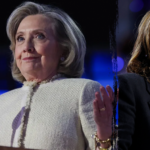For two consecutive weeks, there has been continuous fighting between different factions of the strong Sinaloa cartel in the state of Sinaloa, northern Mexico. At least thirty people have died in the violence. On Tuesday, Mexico’s Defense Secretary, Luis Cresencio Sandoval, confirmed the death of two military personnel.
Despite nearly 2,000 security personnel being deployed in the area, fighting began on September 9.
The violence got worse after the July 25 arrival in the United States of Joaquín Guzmán López, son of former Sinaloa cartel boss Joaquín “El Chapo” Guzmán. He and the more senior cartel leader, Ismael “El Mayo” Zambada, landed near El Paso, Texas. Through his attorney, following his arrest, Zambada alleged he was kidnapped by Guzmán López and transported against his will to the United States.
For now, it appears there is an internal power struggle with El Chapo’s sons, known as “the Chapitos,” pitted against those supporting Zambada. Violence has paralyzed Sinaloa’s capital, Culiacán. Businesses and schools have shut down, and there are few ways of getting around because locals fear being caught in the crossfire.
The latest clashes are but one example of growing violence in the country. With more sophisticated combat methods, cartels have deployed roadside explosives, homemade armoured vehicles, trenches, and even drones that drop bombs.
All week, the city of Culiacán has become increasingly disordered, with anxiety mounting. Last weekend, the Governor ordered Mexican Independence Day festivities and school classes to be stopped. Although feelings are still running high, classes resumed on Tuesday.
Sandoval said 2,200 military personnel and National Guard men were deployed to reinforce security in the area amid efforts to quell the violence. He said he would not reject more forces if necessary.
Meanwhile, regional army commander Jesús Leana Ojeda admitted that the military alone cannot end the conflict.
In a news briefing, he said, “It depends on the antagonistic groups to stop confronting each other. “We, on the contrary, are here to prevent them from having confrontations and the loss of human lives.”
Despite the growing military presence, the situation remains unstable. Military forces are trying to protect the people and avoid conflicts, per outgoing President Andrés Manuel López Obrador.
López Obrador has promoted his “hugs, not bullets” strategy since the start of his administration to avoid confrontation with the cartels. His approach aims to eliminate the causes of crime by providing job training to prevent the recruitment of youngsters by criminal groups.
The newly elected president, Claudia Sheinbaum, said she would continue the López Obrador security strategy. The bloodbaths continue to happen anyhow, showing how hard it is for the government to fight against organized crime.















